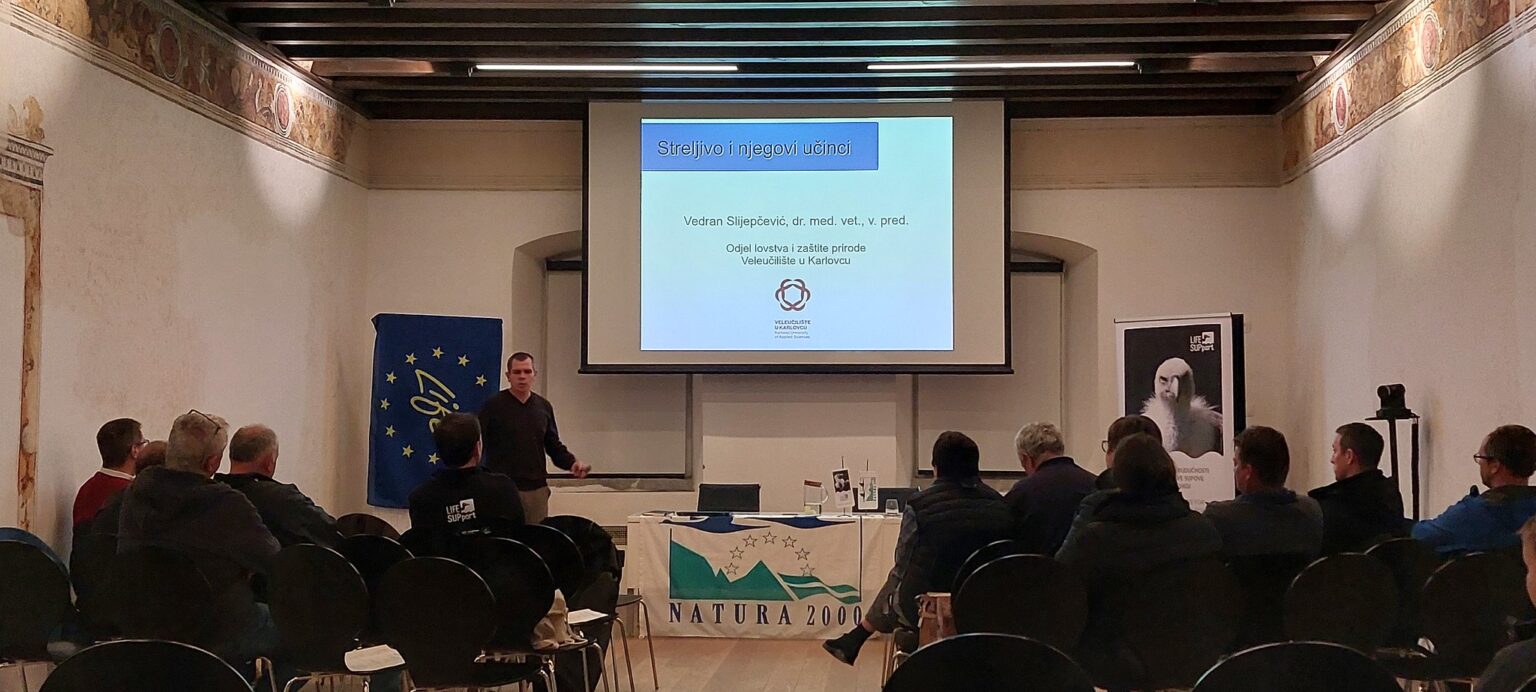
Lead ammunition used in hunting activities brings vultures at risk. In California, lead is the number one mortality factor for wild California condors, a new-world vulture species, and one of the rarest birds on Earth, that has been benefitting from a large-scale reintroduction and conservation programme. If condors and vultures eat carrion that contain lead ammunition, they may experience lead poisoning, with chronic or even lethal consequences. This problem is impeding the condors´ ability to recover in the wild, but there is new hope – California has now banned lead ammunition for hunting wildlife.
Lead poisoning and California condors
As of the first of July, California banned lead ammunition for hunting wildlife. This ban is excellent news for vultures and other wildlife in the region, as it aims to minimise the risk of lead exposure that can be toxic to wildlife. The presence of lead in the bodies and gut piles of the animals that vultures scavenge upon has been preventing the comeback of the endangered California condors, as research indicates. Lead ammunition fragments and spreads in tiny little pieces throughout the carcass of an animal shot at. Scientists suspect that when vultures are feeding, they ingest some of these lead fragments. Even fragments as small as a couple of grains of sand have enough lead to potentially kill a condor.
Lead poisoning is an overlooked threat to Vultures

Lead exposure, primarily through ingestion of lead ammunition, poses a severe threat to vultures. Just like in the recent case of the Griffon Vulture fatality in Bulgaria, ammunition used by game hunters can severely poison vultures and is an overlooked threat. Often, hunters who kill animals leave their carcasses behind and vultures feeding on them ingest lead fragments from the bullets, causing health problems. These problems can vary, from inhibiting proper metabolic functions to having adverse effects on the nervous system. Acute poisoning can result in weakness, inhibited movement, paralysis, hindered respiration, behavioural abnormalities, weight loss, immune system disruptions and bone mineralisation. This reduces the vulture´s breeding performance and negatively alters their movement patterns, and increases the likelihood of collisions with power lines. In severe cases, it might also lead to death. However, the research is still relatively recent, and this journal asks for further exploration:
“There is an urgent need to evaluate the effect of this contaminant on vulture demography, since some species may be undergoing important reductions on their populations due to this threat. A silent threat such as lead may produce long-term population decreases that are difficult to detect or reverse and thus, merits special attention.”
Protecting vultures from lead poisoning

In recognition of the impacts of lead poisoning or contamination, we here at the Vulture Conservation Foundation are committed to work towards a gradual and consensual elimination of lead ammunition from vulture habitats. We are working with other conservation organisations, hunters and governments towards passing laws and regulations to minimise this threat.
Lead poisoning was recognised as an important issue in the Vulture Multi-species Action Plan, a global plan for the conservation of 15 species of vultures, co-developed by the Vulture Conservation Foundation, and endorsed by the Convention for Migratory Species, which called for the phasing out of its use.
Across Europe, we have been involved in several initiatives to reduce the use of lead ammunition and promote lead-free hunting practices. Our LIFE RE-Vultures project is currently working to reduce the use of lead ammunition in some areas of the Rhodopes mountains in Bulgaria by promoting lead-free hunting practices. In the Italian Alps the use of lead ammunition has been banned in the Stelvio National Park and Sondrio Province. At Hohe Tauern National Park in Austria, in the Pyrenees, and as part of our GypConnect and GypHelp LIFE conservation projects, at the Cévennes National Park in the French Massif Central, and in Haute-Savoie, pilot projects where hunters try non-lead ammunition have been or are being carried out, some of them also partly funded by MAVA Foundation.
The VCF has also organized seminars and symposia focussing on this issue, trying to bring together hunters, conservation organisations, protected area managers, and ballistic experts to discuss and find solutions to this problem. Alternatives to lead ammunition do exist, and are easy to use, and we are working with all stakeholders to discuss technical issues and arrive at a win-win solution that benefits all – hunters, vultures and the wider environment.
We are also pleased that the Generalitat Valenciana have banned the use of lead ammunition in two areas in Maestrazgo, a very positive move associated with the new bearded vulture reintroduction project.
California was the latest region in the world following the very clear scientific evidence and banning lead ammunition. We do hope that decision makers in the European Union and in other places now follow suit.
